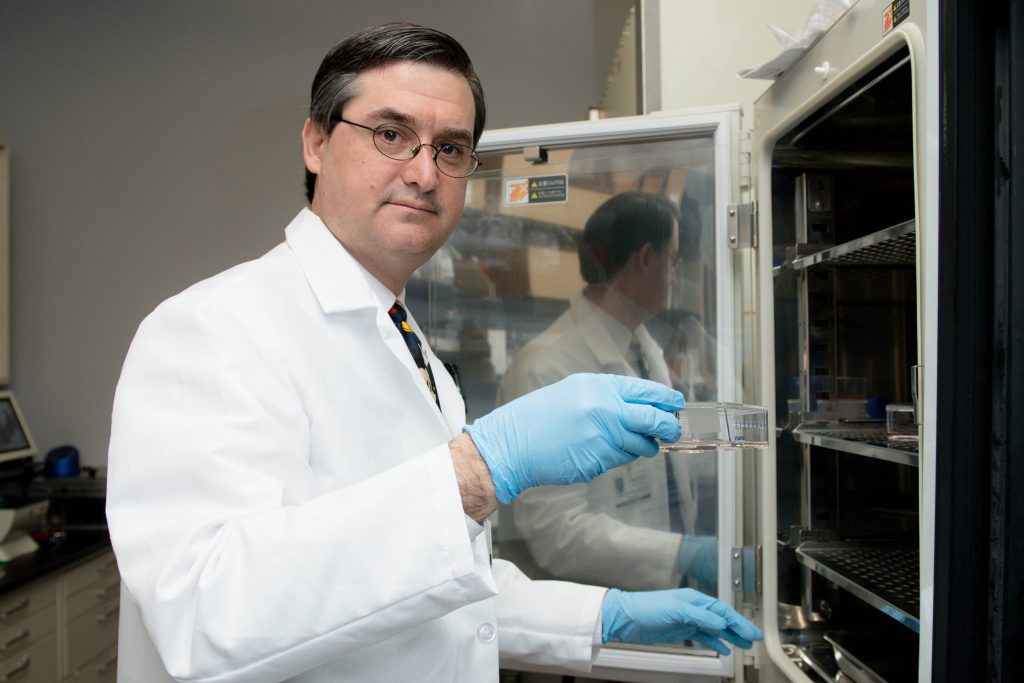
A ground-breaking clinical trial focusing on Glycogen Storage Disease (GSD) Type Ia will be hosted by the GSD Program at Connecticut Children’s Medical Center and UConn Health, under the direction of pediatric endocrinologist and scientist Dr. David Weinstein.
The trial, approved this week by the U.S. Food and Drug Administration, is the world’s first gene therapy clinical trial for GSD.
Patient clinical trials of Weinstein’s gene therapy are expected to start this year in conjunction with the biopharmaceutical company Ultragenyx based in Novato, California. Connecticut Children’s and UConn Health will coordinate the trials with collaborating centers all over the world. Enrollment in the Phase 1/2 study is expected to begin in May, with data from the first cohort expected later this year.
GSD is a rare genetic childhood disorder with various forms (types 0, Ia, Ib, III, VI, IX, and XI) that impacts the liver’s storage and release of sugar. It affects one out of every 100,000 people. Healthy livers store excess sugar from food for the body’s future energy needs and release it into the bloodstream when it is needed as processed sugar enzymes known as glycogen.
In GSD, however, the liver fails to break down glycogen into glucose, causing the body’s blood sugar levels to drop dangerously low, which can lead to seizure or death unless there is a constant intake of glucose in the form of cornstarch. Currently, there are no approved pharmacological therapies.
GSD Type Ia, affecting an estimated 6,000 patients worldwide, is caused by a defective gene for the enzyme glucose-6-phosphatase-α (G6Pase-α) which controls sugar release from the liver. People with this GSD disease type cannot release glucose from the liver during periods of fasting. The resulting hypoglycemia in GSD Type Ia patients can be life-threatening, while the accumulation of the complex sugar glycogen in certain organs and tissues can impair the ability of these tissues to function normally. If chronically untreated, patients can develop severe lactic acidosis, liver tumors, kidney failure, and potentially die in infancy or childhood.
The ultimate goal for the gene therapy, according to Weinstein, is to prevent low blood sugars, eliminate the dependence on cornstarch, and give patients normal lives where oversleeping isn’t a worst-case scenario. The gene therapy is administered through a single dose injection.
“This gene therapy is designed to replace the deficient enzyme in a patient’s liver to improve glucose control and prevent the devastating short and long-term consequences of this disease,” he says. “It is the next step toward finding a cure, and I am personally excited that the journey toward new treatments for this condition will begin here in Connecticut.”
Weinstein is director of the GSD program, a joint venture of Connecticut Children’s and UConn Health. A multidisciplinary team at Connecticut Children’s provides comprehensive clinical care to patients, while UConn School of Medicine is home to the program’s research laboratories. This GSD Program is the largest in the world for the care and treatment of this condition. Patients with this condition travel to Connecticut Children’s from 49 states and 48 countries for care.



